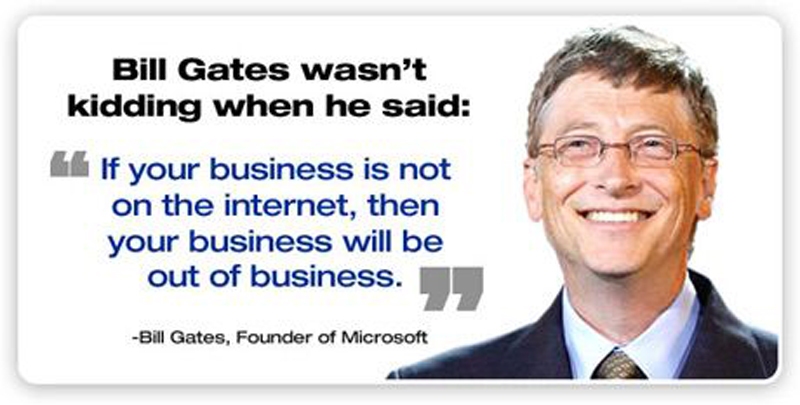If you have a business, an online presence and campaign can benefit (and may be mandatory for) your continued financial growth and outlook into the future.
1. Get Your Domain(s)
When I’m working with a client, I usually make sure they have several domains in their quiver. If possible, and in order of importance, they are:
The Top 4 Dot Coms You Should Own
- Your name dot com
- The name of your business dot com, dot net and dot org
- What you do dot com
- The name of your leading product or service dot com
These are the top 4 dot coms you should own at the very least. First and foremost, your domain collection is about protecting you, your brand, who you are and what you do. There are thieves hiding amongst the landscape of the Internet looking for people and businesses, like yours, who will target domains associated with you and your business, by them and hold them hostage for a premium. And sometimes, it’s worth paying a premium for a dot com that clearly defines your product or service.
2. Post a Basic Site Presence
Let’s say you’ve covered the basics and have your domains safely tucked away in your GoDaddy account, what next? Start by minimally setting up small websites for each dot com. No need to panic here, you don’t have to spend a lot of time or money investing in a web team to get the job done. I walk my clients through a simple 7 to 10 minute process to quickly and easily get this done through their existing GoDaddy account. No need to fret over it, this is a simple DIY web presence. No need to hire it our when you can do it yourself.
3. Who You Are, What Your Do and Where
Of course, this is only the start. Next up, you must know and define what you do and decide where you will position yourself in the marketplace. This is the real work of preparing to launch an effective online presence. Depending on how confident you are and where you are in your business’ life span, this may create a bit of frustration or friction, but trust me, it’s worth it. The information and data gleaned from this process is invaluable and will keep you focused on your business goals.
After you’ve collected all the data from your research and documentation, there comes the moment when you want to integrate this information on your web site. This is where you say, “goodbye,” to your basic web site. Now, it’s time for an upgrade.
4. Upgrade Your Web Site
You may need to upgrade your hosting account with GoDaddy, who has an excellent reputation for call-in phone support (avoid any unnecessary upsells. Their support team can be very aggressive in attempting to sell you products and services that you don’t really need). So, give them a call and tell them you want to upgrade your hosting account and use a user-friendly web platform, like WordPress, for your web presence. WordPress is not only easy, but is extremely powerful and there are many pre-designed templates (themes) and plugins that you can use to make your life online easier; and the price is right: Free.
It doesn’t take long for me to bring my novice clients up to speed and soon they are rocking the Internet like a web superstar. I would say, try it yourself; if it seems too overwhelming, consider hiring it out. If you outsource your web development, be prepared to learn enough about what is going on behind the scenes to make certain that you’re not being taken advantage of and be prepared to take an active role as you build your web presence.
5. Add Content Regularly
As you continue to build your web presence the basic rule of thumb is, “Content is King.” That is to say, posting valuable content about you, your business and what you do on a regular basis will serve you well in the data-infested murk and mire of the Internet. It’s all about being able to be ferreted out in the swamp. Your content will help people find you.
6. Internet Marketing
You will also need to do some online marketing, minimally some Google Adwords, and have some social media representation, such as Facebook presence.
You hear a lot about Search Engine Optimization (some good, some bad), nonetheless, it is necessary to have an understanding of SEO and take advantage of it when and where you can. Effective marketing online campaigns should be your best marketing tool dollar-for-dollar, if done right.
7. Keep On Keeping On
Like anything else in life, don’t think of your online presence as a one-shot deal. Nothing will deteriorate your online presence more than stagnation.
Everything on the Internet is changing every minute of every day. What worked like gangbusters yesterday, could be a worthless strategy tomorrow.
It takes a village to run a successful village and your web team is a priceless asset. Yes, you can start small and do it yourself, but as you grow be thinking about ways you can expand your web marketing to catapult your business to the next level.



